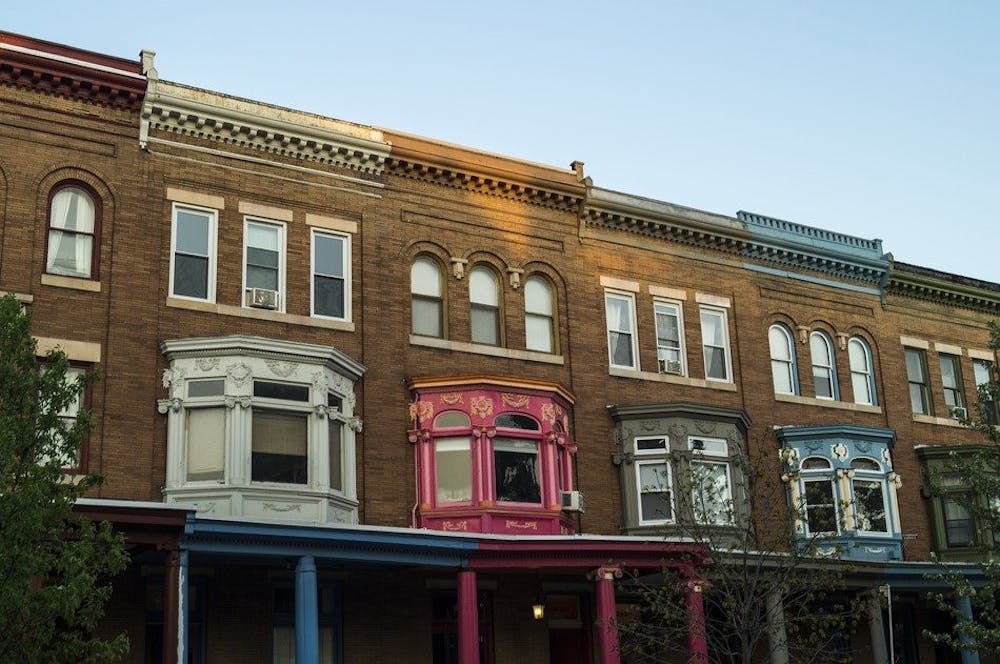Last week, HBO released the movie Charm City Kings, directed by Angel Manuel Soto, on their streaming service HBO Max. Based on the 2013 documentary 12 O’Clock Boys, the film deals with the experiences of young teenager Mouse (played by Jahi Di’Allo Winston) growing up around the dirt bike riding scene in Baltimore. Playing along the lines of a classic coming-of-age story, it follows how he deals with the loneliness, romance and familial clashes but with the nuance that comes with being an impoverished Black kid negotiating adulthood in one of the most segregated cities in America.
The movie begins with an in memoriam video for Darren Stro Franklin, Mouse’s brother who died at the age of 17. In the video, Franklin says “Once I pull off [on a dirt bike], it’s just me, the world, the bike and the streets,” imparting the spirit of the road onto his brother.
Mouse is just 13 but wants to follow in his brother’s footsteps. This is despite Darren asking him, “What you mean you gonna be like me, Mouse? You gonna be better.” That clash of ideas encapsulates the flow of the rest of the movie. It follows Mouse trying to choose whether he should follow his love for animals and become a veterinarian (as his mother wants him to) or embrace the legacy of his brother and the general risk-taking attitude of his friends and become a rider.
One of the most endearing aspects of the movie was that it refused to stick to the trope wherein poor Black kids have nothing but poverty and violence around them. Instead, the movie takes pains to show the universal experience of trying to get through those incredibly weird tween years. Mouse and his two friends, Lamont and Sweartagawdyhh, make up nicknames for themselves, go around the neighborhood to meet a new girl who just moved in (in order to flirt with her, of course) and engage in the sort of offensive humor and bravado they consider to be the mark of the adult men.
There’s a moment when Mouse is talking to Ronique, the new girl on the block, and describing to her the rush and excitement of “The Ride,” when all the bike riders in the city come together. He says, “There’s bikes as far as you can see. You know, it's loud, but it's like, I don’t know, it's calm too. It's like the ocean.” His friends hear him and start immediately shouting, “The ocean! You gay! Bro, you sound like you in a Febreze commercial.” Not only is the scene timed and performed well by these very young actors, but it perfectly represents the search for individuality which everyone goes through at that age, and it depicts how young men are influenced to respond to ideas of beauty and genuine emotion through the adults they see in the world around them and the way it’s portrayed in media.
At the same time, the movie underscores that for Mouse and his friends, the consequences of their flirtations with edgy adulthood are serious. Mouse’s mom has to work double shifts while doing night school to get ahead in her nursing career; Mouse needs to do odd work to get any sort of money to spend while taking care of his younger sister, and every joyride on the bike brings the risk of police brutality and jail.
The movie deals with a lot of different ideas as it goes through the story, from Mouse’s relationship blossoming, to his aforementioned dead brother, to his mother and sister, to the two father figures in his life: a cop, Detective Rivers (played by Will Catlett) and the ex-convict Blax (played by rapper Meek Mill). This makes the story stray a little bit from just being a depiction of biker life in the city (as the 2013 documentary largely was), but personally I found that it didn’t really harm the quality of the film.
I found the two father figures especially interesting since Blax is seen as a considerate, emotional man who wants Mouse to ride but not get involved with the gang-affiliated riders in the scene. Meanwhile, Rivers is a mentor to Mouse, stopping him from getting into potentially illegal situations while nudging him to be a better man. He’s almost a representation of the ways that policing can be better in America — helping through incentive and aid rather than punishment and threat — although he does come off as a bit too paternalistic.
Overall, the movie was a solid coming-of-age story. Baltimoreans will particularly find it interesting for its portrayal of familiar streets and row houses, the depiction of the biking culture in the city, and for its vivid portrayals of the types of socioeconomic conditions and geographic inequalities we see on a daily basis. It’s a particularly important movie for the time we live in, too, since it challenges the way in which many Americans consider Black teenagers to be adults rather than children, which has disastrous consequences on a societal level. And yet it maintains a sense of timelessness in its portrayal of the universal human transition from youth to adulthood and all the uncertainty and pressures that entails.





